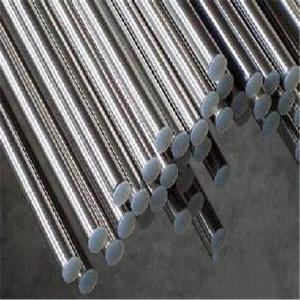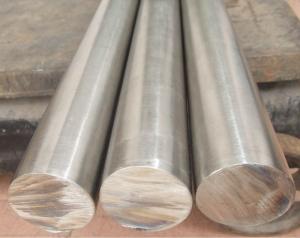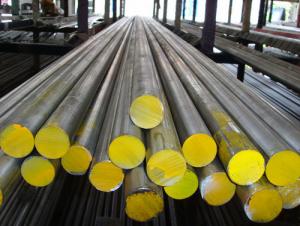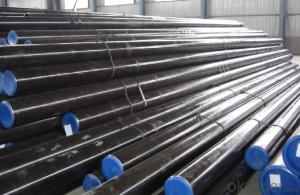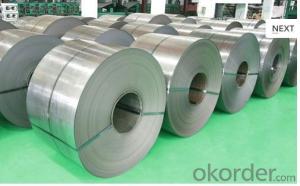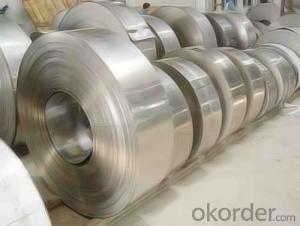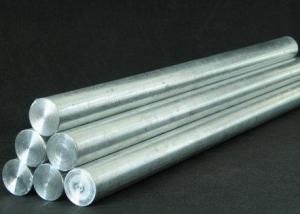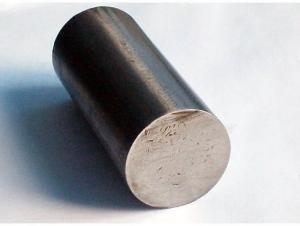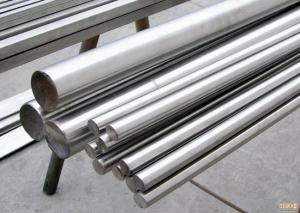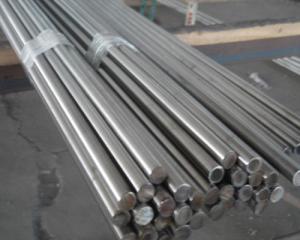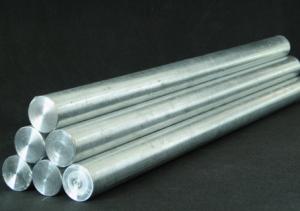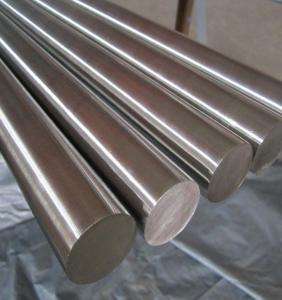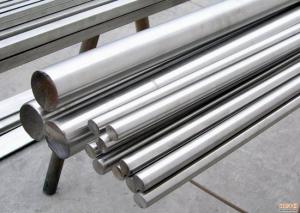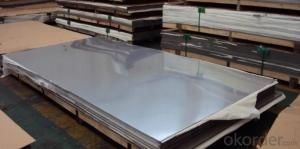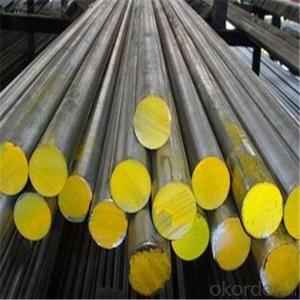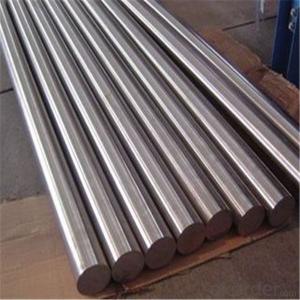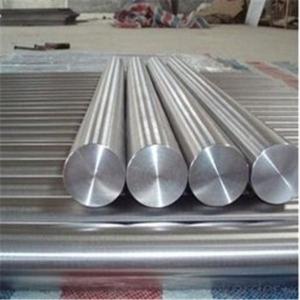Stainless Steel round bar with CE CertificateChina Supplier
- Loading Port:
- Shanghai
- Payment Terms:
- TT OR LC
- Min Order Qty:
- 5 m.t.
- Supply Capability:
- 5000 m.t./month
OKorder Service Pledge
OKorder Financial Service
You Might Also Like
Item specifice
China Supplier stainless steel round bar with CE Certificate
PRODUCT DESCRIPTION
Product Description
1, Diameter: 8mm-250mm rounds
5mm-9mm rods
2, Length: 2m, 3m, 5.8m, 6m or customized
3, Standard: GB, ASTM, AISI, SAE, DIN, JIS, EN
OEM technology - send detailed technical parameters for accurate quotation.
2, Produce Process: smelt iron - EAF smelt billet - ESR smelt billet -
hot rolled or forged to get the steel round bar and plate
3, Heat Treatment: annealing, normalizing, tempering, quenching
4, Surface Treatment: Black, Polished, Galvanized
5, Quality Assurance: We accept third party inspection for all orders.
You can ask testing organizations such as SGS, BV, etc. to test our products before shipping.
PRODUCTS SHOW
Products Show
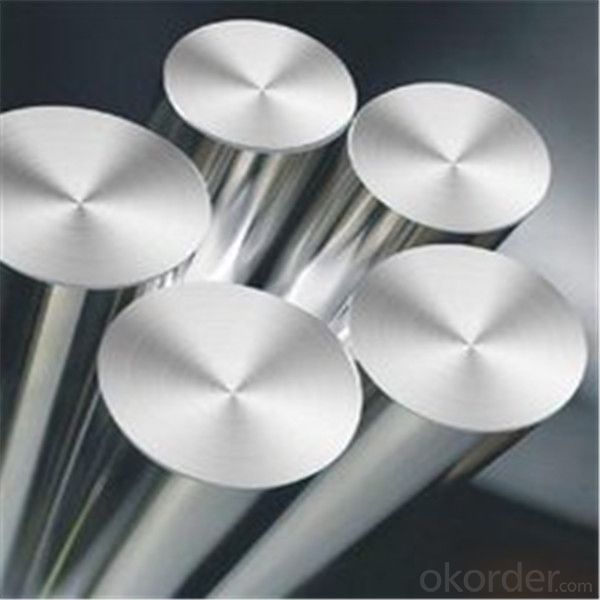
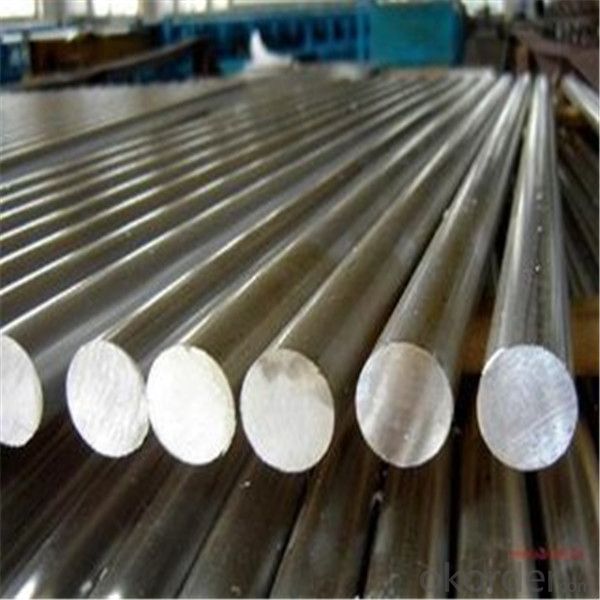
PRODUCTS&APPLICATION
Product Overviews
| Product Name | Typical Grades | Diameter(mm) | Standard adopted |
| Carbon Steel | 20 (1020/S20C/C22) | Ø16-Ø300 |
GB/SAE/JIS/DIN
|
| 40 (1040/S40C/C40) | |||
| 45 (1045/S45C/C45) | |||
| Bearing Steel | GCr9 (51100/SUJ1) | Ø12-Ø250 | |
| GCr15 (52100/SUJ2/100Gr6) | |||
| GCr9SiMn (A485-Gr.1/SUJ3) | |||
Cr-Mo Steel | 20Cr (5120/SCr420H/20Cr4) | Ø12-Ø250 | |
| 40Cr (5140/SCr440/41Cr4) | |||
| 42CrMo(4140/SCM440/42CrMo4) | |||
| Gear Steel | 20CrNiMo | Ø16-Ø600 | |
| 20CrMn(5115/SMnC420/20MnCr5) | |||
| 20CrNiMo(8620/SNCM220/20CrMiMo2) |
Application
| Carbon Steel | Mold bottom, Plastic mold, Construction machinery parts Automobile parts, Security grills, Screens, Construction |
| Bearing Steel | Aerospace, Navigation, Nuclear energy, Chemical industry Electronic information, Petrochemical, Instrument and meter Transportation |
| Cr-Mo Steel | Mechanism & Fasteners gear, Stressed components for vehicles Engines and machines, Parts of larger cross-section |
| Gear Steel | All kinds of gears, Statically and dynamically stressed component for vehicles Engines and machine, Larger cross-section parts, Crankshafts |
F A Q
FAQ
1, Your advantages?
professional products inquiry, products knowledge train (for agents), smooth goods delivery, excellent customer solution proposale
2, Test & Certificate?
SGS test is available, customer inspection before shipping is welcome, third party inspection is no problem
3, Payment Terms?
30% TT as deposit and 70% before delivery.
Irrevocable L/C at sight.
4, Trading Terms?
EXW, FOB, CIF, FFR, CNF
PACK & DELIVERY
Packaging & Delivery
1, Packaging: seaworthy package or as required
2, Delivery: 35-45 days or based on quantity
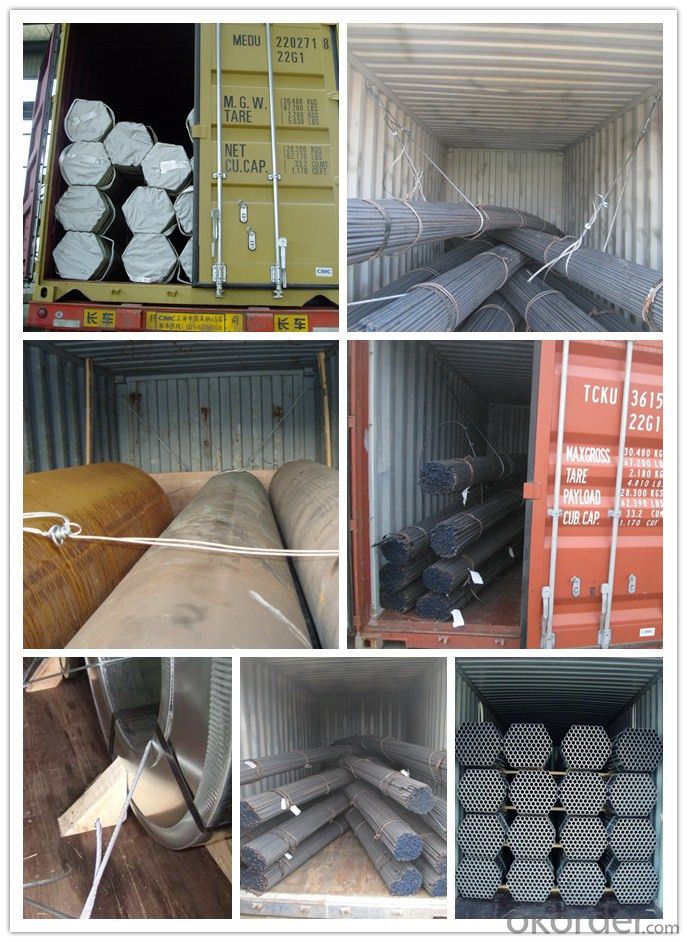
- Q:How do you prevent discoloration on stainless steel bars?
- To prevent discoloration on stainless steel bars, there are several steps you can take: 1. Regular cleaning: Keep the stainless steel bars clean by regularly wiping them with a mild detergent or stainless steel cleaner. This will help remove any dirt, grime, or contaminants that could contribute to discoloration. 2. Avoid abrasive cleaners: Avoid using abrasive cleaners or scrubbing pads on stainless steel bars as they can scratch the surface and make it more prone to discoloration. Stick to soft cloths or non-abrasive sponges for cleaning. 3. Proper drying: After cleaning, make sure to thoroughly dry the stainless steel bars to prevent water spots or mineral deposits. Leaving water to air dry can lead to discoloration over time. 4. Use stainless steel polish: Periodically apply a stainless steel polish or protective coating to create a barrier against discoloration. These products can help maintain the appearance of the stainless steel bars and prevent oxidation. 5. Avoid exposure to corrosive substances: Keep stainless steel bars away from corrosive substances such as acidic or alkaline cleaners, bleach, or chlorine. These chemicals can cause discoloration or even corrosion on the stainless steel surface. 6. Regular maintenance: Inspect the stainless steel bars regularly for any signs of discoloration or damage. Promptly address any issues by cleaning, polishing, or seeking professional assistance if needed. By following these preventive measures, you can maintain the original appearance of stainless steel bars and prevent discoloration over time.
- Q:Do stainless steel bars require regular maintenance?
- Stainless steel bars, like any other material, need to be regularly maintained. Despite their reputation for being resistant to corrosion and staining, they are not completely impervious to damage or wear. By performing regular maintenance, the appearance and strength of stainless steel bars can be preserved. This typically involves the regular cleaning of the bars to eliminate dirt, grime, and potential contaminants that could lead to corrosion. Additionally, it is crucial to promptly address any signs of damage or rust that may be present. As part of regular maintenance, protective coatings or finishes should be applied to enhance the durability and lifespan of stainless steel bars. While stainless steel bars require less maintenance compared to other materials, it is still necessary to provide them with regular care and attention to ensure optimal performance and longevity.
- Q:Can stainless steel bars be used in nuclear power plants?
- Yes, stainless steel bars can be used in nuclear power plants. Stainless steel is a commonly used material in nuclear power plants due to its various properties that make it suitable for such environments. Stainless steel is known for its high corrosion resistance, which is crucial in the nuclear industry where exposure to various corrosive substances is common. It is resistant to oxidation, ensuring the structural integrity of the bars even in high-temperature environments. This resistance to corrosion also helps in preventing the release of radioactive materials, making stainless steel bars a reliable choice for nuclear power plants. Moreover, stainless steel has excellent mechanical properties, including high strength and toughness, which are essential for ensuring the structural integrity of various components in a nuclear power plant. These properties make stainless steel bars capable of withstanding high loads and stresses, providing long-term reliability and safety. Furthermore, stainless steel bars are also known for their resistance to radiation damage. In a nuclear power plant, exposure to radiation is inevitable, and stainless steel has been proven to maintain its properties and structural integrity even after prolonged exposure to radiation. Overall, stainless steel bars are a reliable and suitable choice for use in nuclear power plants due to their corrosion resistance, mechanical properties, and resistance to radiation damage.
- Q:How are stainless steel bars used in the automotive industry?
- The automotive industry extensively relies on stainless steel bars due to their exceptional properties and benefits. These bars are highly utilized in various components and systems to improve the overall performance, durability, and safety of automobiles. A primary application of stainless steel bars in the automotive sector is seen in the manufacturing of exhaust systems. The material's resistance to corrosion and heat makes it an ideal choice for constructing exhaust pipes, mufflers, and catalytic converters. These components face extreme conditions, such as high temperatures and corrosive gases, making the use of stainless steel bars crucial for ensuring longevity and optimal performance. Furthermore, stainless steel bars are also employed in the production of different engine components. Crankshafts, camshafts, and valve stems are commonly manufactured using these bars due to their excellent strength, wear resistance, and ability to withstand high pressure and stress. These components ensure the smooth operation of the engine and contribute to the overall efficiency of the vehicle. Additionally, stainless steel bars find application in the production of suspension and chassis components. Sway bars, control arms, and tie rods, which are responsible for providing stability, control, and handling characteristics to the vehicle, are constructed using these bars. The high strength and corrosion resistance of stainless steel bars make them suitable for enduring the constant stress and loads experienced by these components. Moreover, stainless steel bars are utilized in the automotive industry for manufacturing safety-related components. Roll bars and roll cages, which offer protection to occupants in the event of a rollover accident, are commonly made using stainless steel bars. The superior strength and ductility of these bars ensure that the necessary structural integrity and safety standards are met. In conclusion, stainless steel bars play a vital role in enhancing the performance, durability, and safety of various components and systems in the automotive industry. Their exceptional properties make them the preferred choice for manufacturing exhaust systems, engine components, suspension and chassis parts, as well as safety-related structures.
- Q:What's the price of 202 stainless steel round bar?
- The corrosion resistance of the chemical composition of stainless steel with increased carbon content decreased, therefore, the carbon content of most stainless steel are relatively low, the maximum of no more than 1.2%, some steel Wc (carbon) or even less than 0.03% (such as 00Cr12). The main alloying element in stainless steel is Cr (chromium), which is corrosion resistant only when the Cr content reaches a certain value. Therefore, stainless steel in general Cr (chromium) content of at least 10.5%. Stainless steel also contains Ni, Ti, Mn, N, Nb, Mo, Si, Cu and other elements, stainless steel is not prone to corrosion, pitting corrosion or corrosion or wear. Stainless steel is one of the highest strength materials used in construction. Because stainless steel has good corrosion resistance, it enables structural components to permanently maintain the integrity of Engineering design. Chromium containing stainless steel is also a combination of mechanical strength and high extensibility, easy to process and meet the needs of architects and structural designers
- Q:Can stainless steel bars be used in the retail aftermarket?
- Yes, stainless steel bars can be used in the retail aftermarket. Stainless steel is a versatile and durable material that is resistant to corrosion, making it suitable for various applications in the retail industry. It can be used for displays, shelving, fixtures, and other retail structures, providing strength and a modern aesthetic. Stainless steel bars are also easy to clean and maintain, making them a practical choice for the retail aftermarket.
- Q:What are the applications of stainless steel bars in the food and beverage industry?
- The food and beverage industry benefits greatly from the use of stainless steel bars, thanks to their unique properties and characteristics. These bars have a wide range of applications, which include: 1. Maintaining Hygiene and Food Safety: Stainless steel bars are highly resistant to corrosion, making them perfect for use in food processing equipment, utensils, and surfaces. They do not react with food or beverages, ensuring that there is no contamination or alteration of taste, smell, or appearance. 2. Utilized in Equipment and Machinery: The fabrication of food processing equipment, such as conveyors, mixers, tanks, and pipes, often involves the use of stainless steel bars. Their durability, strength, and ability to withstand high temperatures make them suitable for handling various food products while maintaining food safety standards. 3. Used in Structural Components: Stainless steel bars are also employed in the construction of buildings and structures within the food and beverage industry. They provide strength, stability, and resistance to environmental factors, such as moisture, chemicals, and temperature fluctuations, ensuring long-term durability and safety. 4. Storage and Transportation: Manufacturers frequently use stainless steel bars to produce storage tanks, containers, and transportation vessels. These bars are resistant to corrosion and can withstand extreme conditions, making them suitable for storing and transporting liquid and solid food products. 5. Essential in Brewing and Distilling: Stainless steel bars play a vital role in the brewing and distilling processes. They are used in the construction of fermentation tanks, kegs, and other brewing equipment. Stainless steel's resistance to corrosion and its ability to maintain the quality and taste of beverages make it an ideal choice in this industry. 6. Extensively Used in Commercial Kitchen Equipment: Various commercial kitchen equipment, including countertops, sinks, shelves, and cabinets, are fabricated using stainless steel bars. This material provides a hygienic and easy-to-clean surface, ensuring food safety and compliance with health regulations. In conclusion, the food and beverage industry greatly benefits from the use of stainless steel bars due to their resistance to corrosion, durability, and hygienic properties. These bars contribute to maintaining food safety standards, ensuring the quality and integrity of food products, and providing a reliable and long-lasting solution for various equipment and structural needs.
- Q:Are stainless steel bars suitable for elevator components?
- Yes, stainless steel bars are suitable for elevator components. Stainless steel is known for its strength, durability, and corrosion resistance, making it an ideal material for elevator components that require reliability and longevity.
- Q:Do stainless steel bars have good corrosion resistance in acidic environments?
- Stainless steel bars exhibit remarkable resistance to corrosion when placed in acidic environments. The corrosion-resistant nature of stainless steel is widely recognized, and this feature is further amplified through the inclusion of chromium. The addition of chromium creates a shielding coating called chromium oxide, which serves as a formidable barrier against the destructive impact of acids. Consequently, stainless steel bars are extensively employed in sectors like chemical processing, oil and gas, and food processing, where exposure to acidic surroundings is prevalent.
- Q:303 stainless steel rods and brass rods, that hardness
- 303 stainless steel is austenitic stainless steel, while austenitic stainless steel is not through heat treatment to increase hardness, so it can not be reduced by heat treatment hardness.
1. Manufacturer Overview |
|
|---|---|
| Location | |
| Year Established | |
| Annual Output Value | |
| Main Markets | |
| Company Certifications | |
2. Manufacturer Certificates |
|
|---|---|
| a) Certification Name | |
| Range | |
| Reference | |
| Validity Period | |
3. Manufacturer Capability |
|
|---|---|
| a)Trade Capacity | |
| Nearest Port | |
| Export Percentage | |
| No.of Employees in Trade Department | |
| Language Spoken: | |
| b)Factory Information | |
| Factory Size: | |
| No. of Production Lines | |
| Contract Manufacturing | |
| Product Price Range | |
Send your message to us
Stainless Steel round bar with CE CertificateChina Supplier
- Loading Port:
- Shanghai
- Payment Terms:
- TT OR LC
- Min Order Qty:
- 5 m.t.
- Supply Capability:
- 5000 m.t./month
OKorder Service Pledge
OKorder Financial Service
Similar products
New products
Hot products
Hot Searches
Related keywords
